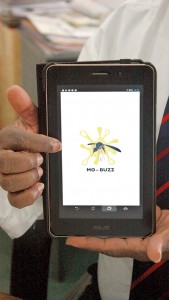News
Hospitals relieved at drop in dengue cases but plead for vigilance
Hospitals in Colombo, Kandy, Anuradhapura, Jaffna and Galle are reporting a drop in dengue cases but warn that only continued vigilance would keep down sickness and deaths from the mosquito-borne virus.
It is imperative that every house is checked for dengue breeding places, Colombo National Hospital Director Dr Anil Jasinghe said.
Last month the hospital treated 102 patients with dengue fever and 28 patients with dengue hemorrhagic fever, he said.
Colombo district had he highest number of dengue patients with 1,799 cases last month and 299 cases this month.
Dr. Jasinghe said the National Hospital was being extremely careful to prevent any chance of dengue coming from negligence within its own premises.
“Dengue Charka, a programme to check hospital premises for dengue breeding places, is being carried out by a team of matrons,” he said. Staff had orders to keep the hospital premises clean. Public Health Inspectors were constantly monitoring hospital premises including two new building sites.
In the outstations, similar alerts are being maintained.
Anuradhapura Hospital Director Dr W. Athapattu said only a few cases of dengue had been reported and staff were taking care to keep the premises clean.
He requested the public to destroy every source of accidental water collection in order to stop mosquitoes breeding and causing dengue, filaria and other illnesses.
 Karapitita Hospital in the Galle area has installed dengue monitoring equipment in the paediatric, accident and emergency units, the hospital’s Deputy Director, Dr. Chandima Siritunga said.
Karapitita Hospital in the Galle area has installed dengue monitoring equipment in the paediatric, accident and emergency units, the hospital’s Deputy Director, Dr. Chandima Siritunga said.
He said that while patients admitted directly to the hospital with dengue infection had decreased, specialists were dealing with critical patients transferred from other hospitals in Tangalle, Balapitiya and Hambantota.
Kandy Hospital Director Dr. R.M.S.D. Ratnayake said there had been no dengue patients for two weeks, an achievement enabled by public education campaigns as well as keeping the hospital and surrounding places clean.
Kandy Hospital’s Medical Officer of Public Health Dr. T.A.H Devapriya said deaths were caused by sufferers attempting home remedies instead of going immediately to hospital. Resting was essential while the patents’ platelet count was monitored and internal haemorrhage treated.
Jaffna Hospital Director Dr. Pavani Pasupathi Rajah said there had been an increase in dengue patients in the beginning of January but now there were fewer patients.
Puttalam Base Hospital sources said that last month the hospital had received dengue patients from Kalpitiya and Kandakulliya and that patient numbers were high from the Wanathawillu and Anuradhapura areas due to high populations in those areas.
Last month, Puttalam hospital had 15-20 patients with dengue, and two deaths of patients from Megamuwa area.
| App now available to track dengue An android app that can predict where and when dengue might occur and allow information about dengue risk to be quickly shared is now available to the public. The Mo-Buzz app connects to Google Maps and shows dengue site photos, constantly updated maps of dengue mosquito breeding places, contact details of hospitals, the nearest municipal council and relevant officials including the CMC Chief Medical Officer as well as information about the dengue illness. The app, developed by Singapore’s Nanyang Technological University, was developed in 2013 for Sri Lanka and has been used for the past two years by Colombo Municipal Council (CMC) authorities, CMC Chief Medical Officer Dr. Ruwan Wijayamuni said. The public can now download Mo-Buzz through the play store, he said. It is available in all three official languages. Dr. Wijayamuni said members of the public who spotted dengue breeding grounds or other evidence of dengue could use the app to send photos straight away through their mobile devices to the Chief Medical Officer, with this communication being instantly visible to regional public health inspectors. The information gathered would be effective for taking quick action against people who have dengue breeding places. Biological warfare against mosquitos The Colombo Municipal Council (CMC) is using biological weapons such as larvivorous fish and bacteria to help eradicate dengue. The CMC has begun breeding mosquito larvae-eating fish such as mosquito fish (Gambusia affinis), guppies, (Poecilia reticulata), nala handaya (Aplochcheilus dayi) and thithaya (Puntius titteya) to be put into irrigations tanks and canals. “The fish are bred in the council’s pest control centre and we are planning to introduce them into man-made waterways,” CMC Chief Medical Officer Dr. Ruwan Wijayamuni said. The council is also employing Bacillus thuringiensis israelensis, bacteria developed in Israel that is fatal to mosquito larvae when the larvae feed on it. Dr. Wijayamuni said the bacteria had been introduced last year by the Health Ministry and used in parks including Viharamahadevi Park, pools, concrete slabs, canals and other irrigations. The bacteria are known to be safe for humans, animals and all but a few insects. The CMC is using an American product named Mosquito Dunks, a hardened form of the bacteria, that kills mosquito larvae without adverse effects on the public. The cubes dissolve in water. “We will use dunks on all water sources excluding drinking water,” Dr. Wijayamuni said. The CMC had purchased 10, 000 dunks last year and planned to double or treble that purchase at a cost of Rs. 5 million this year. Dr. Wijayamuni said that although dengue cases had dropped this month a rise was expected in April-May and he warned people to keep their homes clear of dengue breeding places. He said 583 suspected cases of dengue had been reported in the past 45 days, 80 per cent of whom would be diagnosed with the illness |

